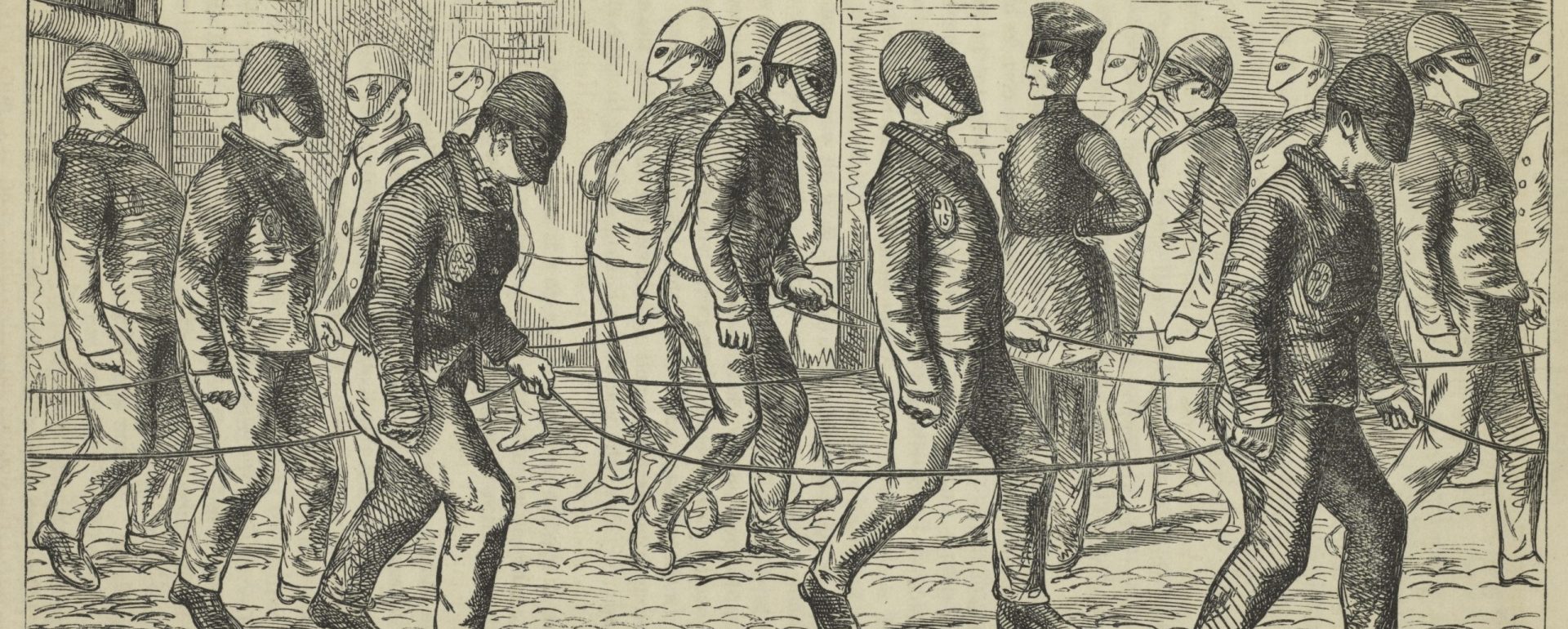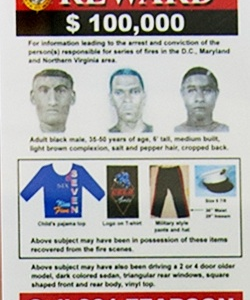Throughout this class, we focused on and discussed how “criminals” are depicted in artwork and media. But in class, there was never a discussion of how the criminal could profit and whether it is or is not morally correct.
Relationship between Thomas Sweatt and Jonathan Riffe
Thomas Sweatt is one of the most horrific and notorious arsonists in the history of the United States. Sweatt set over 350 fires in fires across the Maryland, DC, and Virginia areas over a span of 25+ years and was not caught until 2005. He was charged with a multitude of crimes which include various counts: possession of destructive devices; destruction of buildings by fire resulting in personal injury; possession of destructive devices in furtherance of a crime of violence; and in the criminal information which was filed in the District of Columbia, first-degree premeditated murder (felony murder) and second-degree murder. Only being charged with 45 of these fires, he was sentenced to life in prison without the possibility of parole. Sweatt never admitted the true motives behind his crimes until he started to correspond with Jonathan Riffe.
Jonathan Riffe is a career firefighter with the Annapolis Fire Department and was the first person to be successful in gaining the trust of Thomas Sweatt. Jonathan and Thomas would exchange letters, which were later published in the book Thomas Sweatt: Inside the Mind of DC’s Most Notorious Arsonist by Jonathan. These letters gave readers first-hand accounts of what went through Sweatt’s head when he committed his crimes. But these letters did come with a cost, for Jonathan to fully gain the trust of Sweatt to be able to publish the letter he had to pay him. Jonathan would send Sweatt money and pictures so that Sweatt could buy things for himself in prison as well as have a visualization of firefighters. With Sweatt making a “profit” from Jonathan’s letters, this begs the question of whether it is morally correct.

In today’s day and age, many people will make Podcasts, videos, movies, artwork, etc. about people who have committed “criminal” acts. Typically looking to make a profit off what they are talking about or creating artwork about. With this profit they are making off a criminal’s story: should they be paying or giving the person gifts as collateral for their stories?
Son of Sam law
The Son of Sam laws prohibits “criminals” from profiting from writing, shows, and podcast about their crimes. Active in 42 out of 50 states, The Son of Sam law is a law that is controversial and has frequently been struck down in courts due to violations of First Amendment rights. In 1991, the supreme court ruled the law unconstitutional for 2 reasons. One issue is that the statute was overinclusive since the crime-related expression is not criminal. Another issue is the statute was underinclusive since it imposed a financial burden on individuals related to the content of their speech. According to the Son of Sam law, any profits made must be redirected to a victim fund and distributed to the victims of the crime. Many states have adopted amendments so that the law is constitutional, but this still poses the issue that there is a potential way for criminals to still make a profit.
With the inconsistency of this law, criminals can go to certain States and commit crimes hoping that someone will create content about their crime to make a profit. Due to this inconsistency, we are encouraging criminal acts. You look at so many states like California, Maryland, Arizona, and Washington all overruled their Son of Sam laws since they were unconstitutional since the law violated the First Amendment rights of the criminal. Criminals can go to these States and potentially make a profit. Thomas Sweatt was charged in the state of Maryland and was still allowed to make a profit from the books, but Jonathan wrote since he paid him in gifts.
What can you push lawmakers to change?
With the Son of Sam laws being able to be challenged so easily some of the things that we can do to fix this are narrowing and tailoring the law, which means the interest of the First Amendment. By doing so, the state should create amendments to the law that do not go against the First Amendment right of the criminal. States can also make these laws content neutral which means these are laws that do not discriminate based on the substance or speech matter. Another suggestion on how we can amend the Son of Sam laws is by applying them only to those accused of convicted crimes. If states tailer the statute to only encompass those who have eventually been convicted of crimes it will significantly narrow down what the law encompasses. By limiting the language to only criminals who are accused and convicted of a crime the wall will fit the mold and not violate the First Amendment rights. A final suggestion is to narrow down the definition of ‘profits of a crime’. If the content-neutral clause narrows down the definition of the phrase ” profits of the crime” to encompass only items that are generated as the result of a crime it will not infringe on the First Amendment rights of the criminal. Seven states in the United States have adopted amendments similar to this stating that profits from crime should not be subject to fortitude unless an integral part of work is a depiction of the defendant’s crime or impression of their thoughts regarding such crime.
Discussion questions
- What are other amendments that states can enact to make the Son of Sam laws constitutional and not violate the First Amendment right of the criminal?
- Do you think that if a criminal cannot make a profit from his crimes should they still be paid in gifts as compensation for the input they put into telling their story?
- How do you think the victims of a crime are affected when a criminal is paid for telling their story? Especially in the case that only the criminal side of the story is told?
Sources
Riffe, Jonathan. Thomas Sweatt: Inside the Mind of DC’s Most Notorious Arsonist. Mascot Books, 2018.
Thomas, Sandra. Son of Sam Laws, https://www.mtsu.edu/first-amendment/article/1242/son-of-sam-laws%5C.
Hudson.Jr, David. Seres v. Lerner (Nev.) (2004) https://mtsu.edu/first-amendment/article/767/seres-v-lerner
DC Area Serial Arsonist https://www.atf.gov/our-history/dc-area-serial-arsonist

